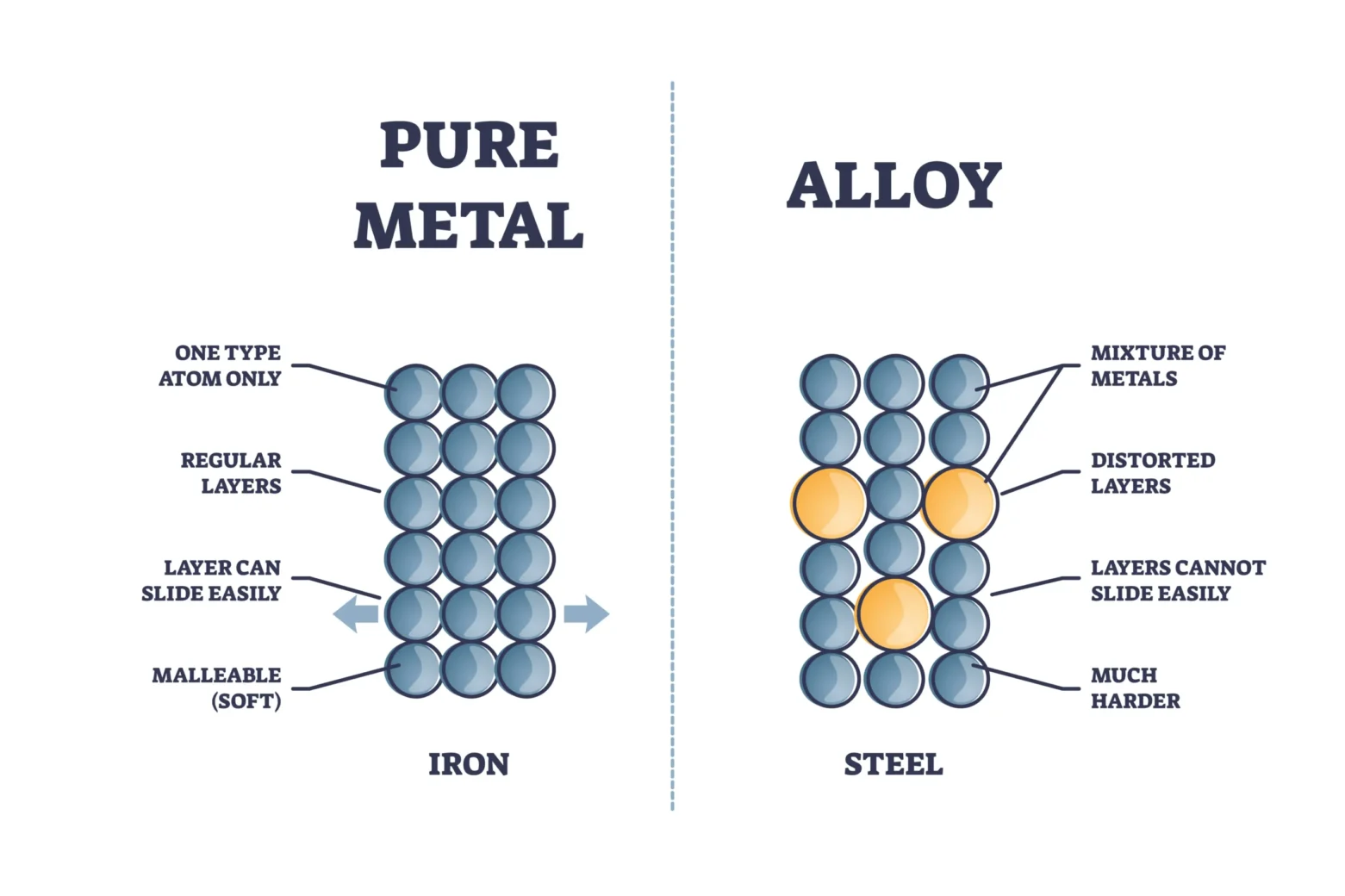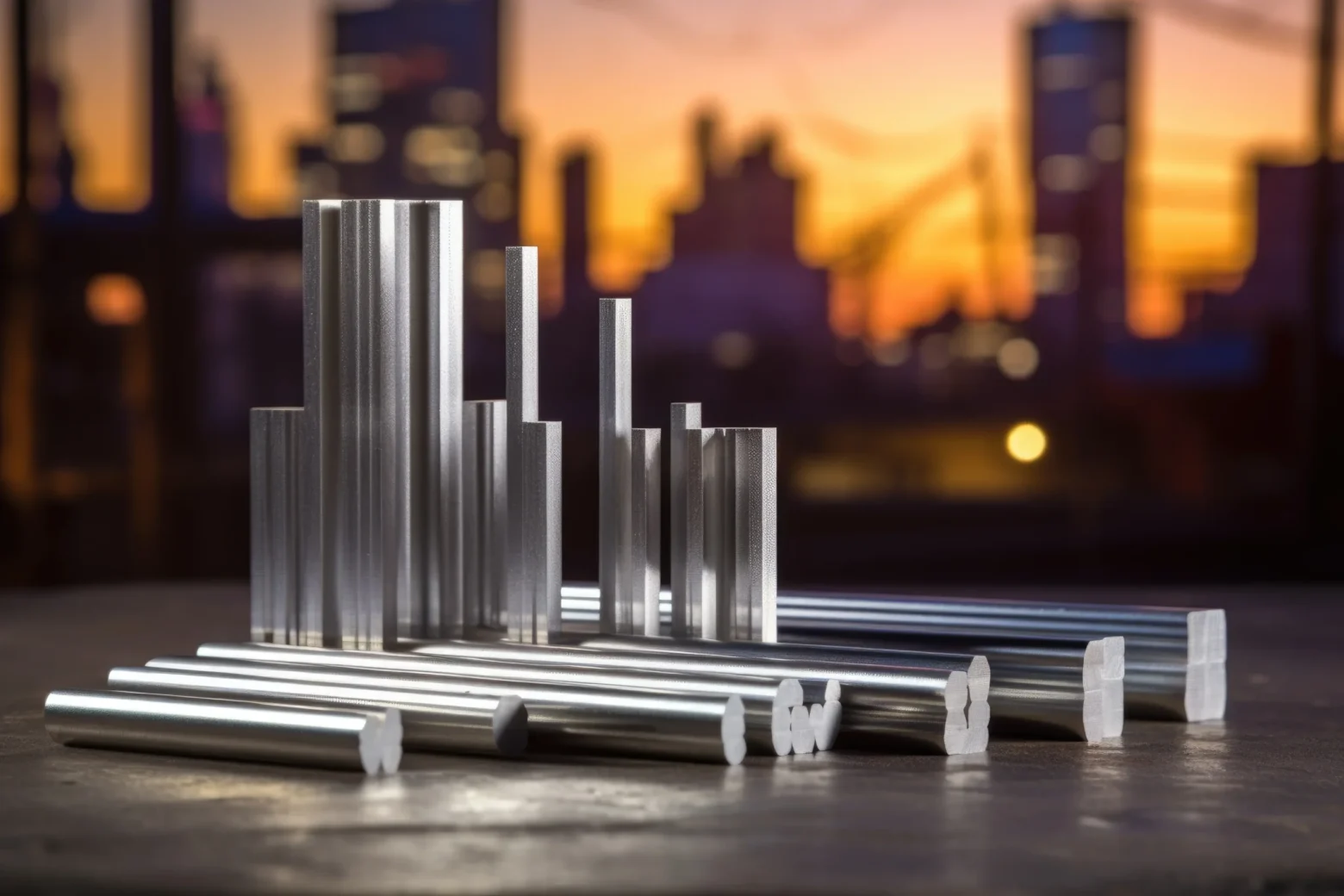Pure aluminium, with its remarkable melting point, stands as a testament to the exceptional properties of this versatile metal. Unlike many other metals, pure aluminium has a relatively low melting point of 660.32 degrees Celsius (1220.58 degrees Fahrenheit). This means that it can easily transform from its solid state to a liquid form at temperatures that are attainable in everyday applications. This characteristic makes pure aluminium highly desirable for various industrial processes, including casting and moulding. Moreover, its low melting point allows for efficient recycling, as it can be melted down and reformed multiple times without significant degradation in quality. The ability of pure aluminium to undergo such transformation at relatively low temperatures showcases its versatility and adaptability, making it an essential material in countless industries worldwide.
Exploring the Desirable Properties of Pure Aluminium
Pure aluminium possesses a range of desirable properties that make it an incredibly versatile and sought-after material. One of its key characteristics is its exceptional corrosion resistance, making it ideal for applications in industries such as construction, aerospace, and automotive. Additionally, pure aluminium exhibits excellent thermal and electrical conductivity, making it a preferred choice for heat sinks and electrical transmission lines. Its lightweight nature further enhances its appeal, making it an attractive option for manufacturing lightweight components. Another noteworthy property of pure aluminium is its high reflectivity, making it valuable in applications such as solar panels and mirrors. Furthermore, pure aluminium is highly malleable, allowing for easy shaping and forming into various intricate designs. Its non-toxic nature adds to its appeal, making it suitable for use in food packaging and medical devices. Overall, the desirable properties of pure aluminium make it a remarkable material with endless possibilities in various industries.
Unlocking the Potential of Pure Aluminium Alloys
Pure aluminium alloys hold immense potential for various industries due to their exceptional properties and versatility. By combining pure aluminium with other elements, such as copper, magnesium, or silicon, the resulting alloys exhibit enhanced strength, durability, and corrosion resistance. These alloys can be tailored to meet specific application requirements, making them ideal for aerospace, automotive, construction, and electrical industries. The addition of alloying elements not only improves the mechanical properties but also enables better formability and weldability. Moreover, pure aluminium alloys offer excellent thermal and electrical conductivity, making them valuable in heat exchangers and electrical wiring applications. The development of innovative alloy compositions and manufacturing techniques continues to push the boundaries of pure aluminium alloys, opening up new possibilities for lightweight structures and advanced technologies. With ongoing research and advancements, the full potential of pure aluminium alloys is yet to be fully realized, promising a future of endless possibilities in various industries.
 99.99% Pure Aluminium: Purity at its Finest
99.99% Pure Aluminium: Purity at its Finest
When it comes to aluminium, purity is of utmost importance. And that’s where 99.99% pure aluminium shines. This remarkable material boasts an incredibly high level of purity, making it ideal for a wide range of applications. With such a high purity level, this form of aluminium exhibits exceptional conductivity, corrosion resistance, and thermal properties. Its purity also ensures that it remains highly malleable and ductile, allowing for easy shaping and forming into various shapes and sizes. Moreover, its low weight and high strength-to-weight ratio make it an excellent choice for industries like aerospace, automotive, and electronics. But such exceptional purity comes at a cost. The price of 99.99% pure aluminium per kg can be significantly higher than other forms of aluminium due to the intensive refining processes required to achieve such purity levels. Nonetheless, for those seeking the finest quality aluminium with unmatched properties, 99.99% pure aluminium is an investment worth considering.
Understanding the Price Dynamics of Pure Aluminium per kg
The price of pure aluminium per kg is influenced by various factors, making it an intriguing topic to explore. One key factor is the cost of production. Pure aluminium is obtained through a complex refining process, involving the extraction of bauxite and subsequent purification. This intricate procedure adds to the overall production cost, thereby impacting the price per kg. Additionally, market demand plays a crucial role in determining the price dynamics. Industries such as aerospace, automotive, and construction heavily rely on aluminium for its exceptional properties. As demand fluctuates, so does the price. Moreover, global economic conditions and geopolitical factors also contribute to the volatility of aluminium prices. Understanding these dynamics can assist investors, manufacturers, and consumers in making informed decisions. By keeping a close eye on these variables, one can navigate the market and take advantage of potential opportunities that arise in the pricing of pure aluminium per kg.
Pure Aluminium vs Aluminium Alloy: A Comparative Analysis
When it comes to choosing between pure aluminium and aluminium alloy, understanding their differences is crucial. Pure aluminium, with its remarkable properties, is known for its high electrical conductivity and excellent corrosion resistance. It also boasts a relatively low density and exceptional thermal conductivity. On the other hand, aluminium alloys are created by combining pure aluminium with other elements, enhancing their strength and durability. These alloys are widely used in industries such as aerospace, automotive, and construction due to their improved mechanical properties. While pure aluminium may be more malleable and easier to form, aluminium alloys offer a higher tensile strength and greater resistance to wear and tear. Additionally, the cost of pure aluminium per kg is generally higher than that of aluminium alloys due to the additional manufacturing processes involved in creating alloys. Ultimately, the choice between pure aluminium and aluminium alloy depends on the specific application and desired characteristics needed for the project at hand.
Pure aluminium is truly a remarkable material that offers a wide range of possibilities. Its melting point, desirable properties, and potential for alloying make it a versatile choice in various industries. The purity of 99.99% aluminium sets a high standard for quality and performance. However, the price per kg of pure aluminium can fluctuate due to market dynamics. When comparing pure aluminium to aluminium alloys, it becomes clear that both have their own advantages and applications. As we delve deeper into the world of aluminium, it is important to continue exploring its potential and uncovering new ways to harness its unique properties. How can we further enhance the purity and affordability of pure aluminium? What innovative uses can we discover for aluminium alloys? These questions leave us with exciting avenues for future research and development in this fascinating field.
Comments are closed.

